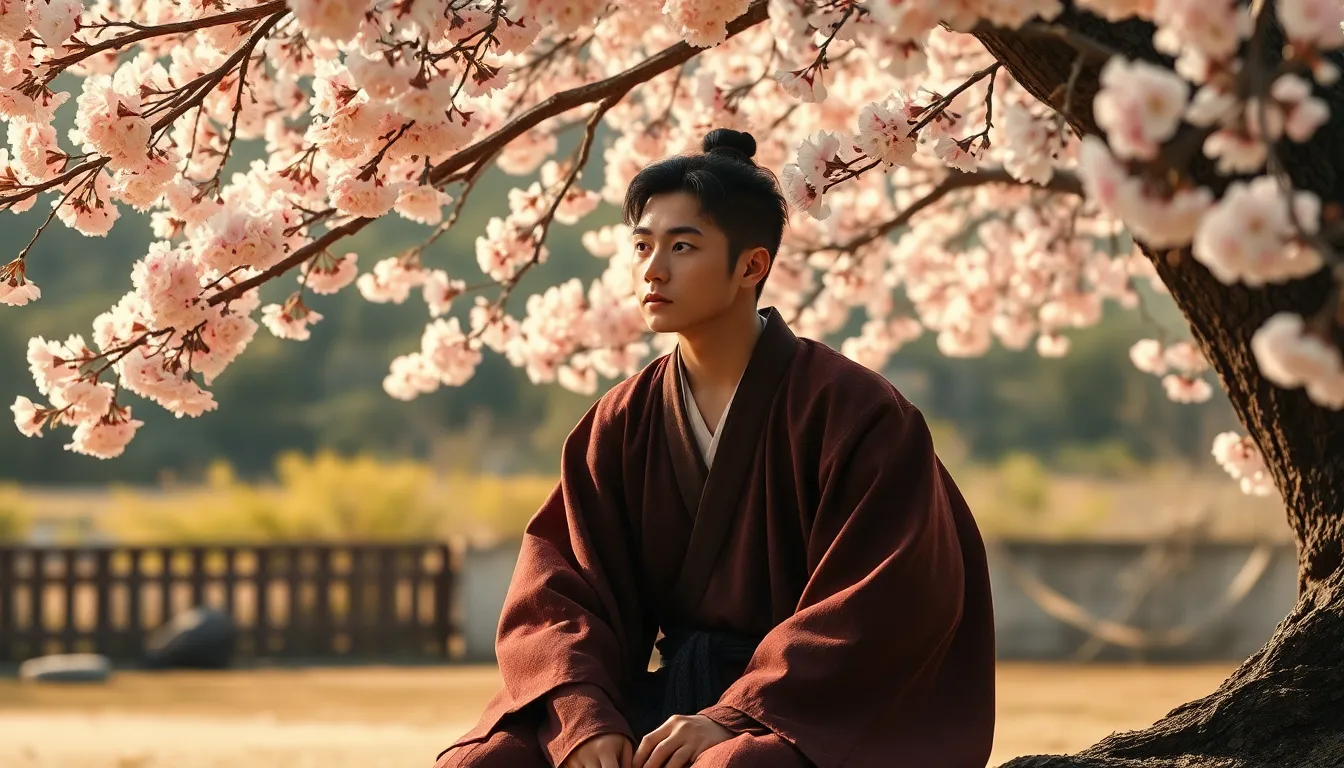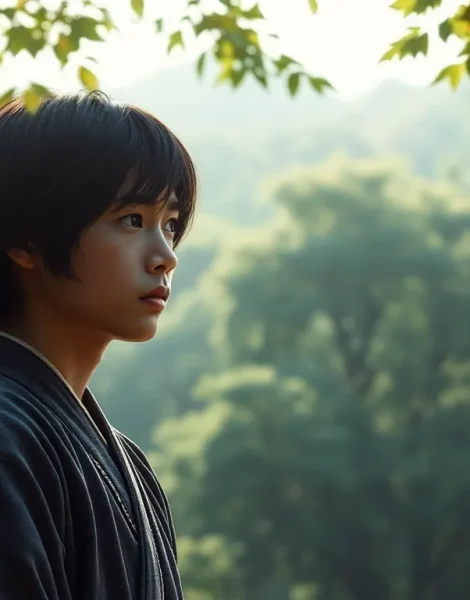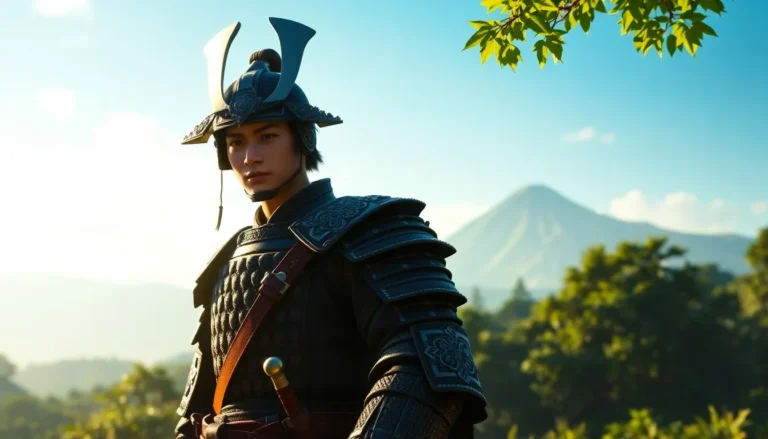In the stunning world of Ghost of Tsushima, players don’t just wield a katana; they wield a heavy dose of nostalgia and emotional depth. One of the most poignant aspects of this epic adventure is the father-son bond that unfolds through vivid flashbacks. These moments aren’t just filler; they’re the heart and soul of Jin Sakai’s journey, offering insights into his motivations and struggles.
As players navigate the beautiful yet brutal landscapes of Tsushima, these flashbacks serve as a powerful reminder of the values instilled by Jin’s father. They blend humor and heart, making players chuckle and tear up all at once. So grab your controller and prepare to dive deep into the emotional undercurrents that make this game not just a battle for honor, but a touching exploration of family and legacy.
Table of Contents
ToggleOverview of Ghost of Tsushima
Ghost of Tsushima immerses players in feudal Japan during the Mongol invasion. The game’s protagonist, Jin Sakai, faces intense conflicts not only against external foes but also within his personal journey. Players explore vast open-world landscapes, which include lush forests and picturesque beaches.
Quests unfold a powerful narrative driven by themes of honor and legacy. The relationship between Jin and his father is pivotal. Flashbacks offer glimpses into their bond, shaping Jin’s understanding of duty and sacrifice. Moments filled with warmth and humor contrast starkly with the harsh realities of war.
Narrative elements deepen player engagement through emotional storytelling. Conflict crystallizes in Jin’s struggle between traditional samurai values and the necessity of adopting new, unorthodox methods in combat. Each flashback scene enriches Jin’s motivations, accentuating key decisions he faces throughout the game.
The game’s design amplifies its storytelling. Visuals enhance the emotional impact, drawing players into critical moments from Jin’s past. Audio components, like the stirring score, accompany significant flashbacks, emphasizing their importance within the overall plot.
Developers crafted Ghost of Tsushima not just as an action game, but as a rich exploration of family ties. These father-son flashbacks remain essential in developing Jin Sakai’s character. Players connect deeply with his story, firmly rooting the narrative in themes of love, loss, and resilience.
Significance of Father Flashbacks

Father flashbacks play a crucial role in shaping the narrative of Ghost of Tsushima, anchoring Jin’s journey in themes of family and legacy.
Emotional Impact on Players
Father flashbacks evoke strong emotions, drawing players into Jin’s personal story. Moments of warmth and humor contrast sharply with the game’s intense conflicts. Players experience nostalgia, connecting deeply with Jin’s memories. Such emotional engagement enhances the immersive quality of the game. Through these flashbacks, players form a bond with Jin, experiencing his joy and pain. This connection makes his struggles feel relatable, fostering investment in his journey. Memories of his father resonate throughout the gameplay, reminding players of their own familial relationships. Ultimately, these flashbacks enrich the player’s emotional experience, adding layers of depth to the narrative.
Contribution to Character Development
Flashbacks to Jin’s father significantly contribute to his character development. Each memory reveals motivations and struggles, showcasing Jin’s internal conflicts. Insights gained from his father shape Jin’s understanding of duty and sacrifice. Scenes from the past illustrate the complexities of Jin’s evolving perspective on honor. Understanding his father’s values influences Jin’s decisions throughout the game, highlighting the weight of expectations. These moments establish a strong foundation for Jin’s character arc. As the narrative progresses, flashbacks deepen Jin’s sense of purpose, making his journey more compelling. Through these reflections, players witness Jin’s transformation, underscoring the profound impact of his father’s legacy.
Analysis of Flashback Scenes
Flashbacks in Ghost of Tsushima evoke strong emotional responses while revealing critical aspects of Jin Sakai’s character. They shape a deeper understanding of his motivations and attachments.
Key Moments in the Flashbacks
Key moments include Jin’s lessons with his father about honor and the samurai way. Each interaction highlights their bond and emphasizes Jin’s inner conflict throughout the game. For instance, in one memorable flashback, Jin learns that strength lies not just in combat but also in compassion. These pivotal scenes establish a foundation for Jin’s growth, contrasting his father’s teachings against the brutal realities of war. The engaging nature of these moments makes them central to Jin’s journey, while underscoring the enduring influence of his father’s legacy.
Cinematic Techniques Utilized
Cinematic techniques add richness to the storytelling. Through sweeping camera angles and dynamic lighting, the flashbacks offer a visual representation of Jin’s emotions. Slow-motion sequences emphasize moments of realization, drawing players into Jin’s experiences with his father. Sound design plays a vital role, with heartfelt music enhancing the emotional weight of each scene. Subtle transitions between present action and past memories connect Jin’s current challenges to his formative experiences. This thoughtful approach enhances narrative depth, making the flashbacks even more impactful within the game.
Themes Explored Through Flashbacks
Flashbacks in Ghost of Tsushima reveal deep themes, particularly focusing on honor, sacrifice, legacy, and identity. These elements intertwine, enhancing the narrative experience throughout the game.
Honor and Sacrifice
Honor emerges as a guiding principle in Jin’s journey. His father stresses the importance of maintaining honor in all actions. Through flashbacks, Jin learns that true strength encompasses not only combat skills but also bravery in making difficult choices. Personal sacrifices become crucial as he balances his samurai principles against the harsh realities of war. The lessons imparted by his father guide Jin toward understanding that sacrifice often accompanies honorable decisions. Thus, these moments shape not only Jin’s character but also his ultimate path in confronting the Mongol invasion.
Legacy and Identity
Legacy serves as a cornerstone of Jin’s relationship with his father. Each flashback highlights his father’s teachings about family and tradition. Jin wrestles with the expectations placed on him as the bearer of his family’s legacy. Emphasis on these teachings fosters his identity within the tumultuous context of feudal Japan. Flashbacks showcase the struggle between upholding familial honor and adapting to changing circumstances. Through this ongoing conflict, Jin’s sense of self evolves, reflecting both the weight of his heritage and the urgency of his present challenges.
The father flashbacks in Ghost of Tsushima serve as a powerful emotional anchor for Jin Sakai’s journey. They not only illuminate his motivations but also deepen the player’s connection to his struggles and triumphs. Through these poignant moments, players witness the evolution of Jin’s character as he navigates the complexities of honor and legacy.
The blend of humor and heart in these flashbacks enriches the narrative, making it resonate on a personal level. As Jin grapples with his father’s teachings amidst the chaos of war, the game transcends typical action storytelling. It becomes a heartfelt exploration of family ties, sacrifice, and what it truly means to be a warrior. Ultimately, these flashbacks are integral to understanding Jin’s quest and the enduring impact of his father’s legacy on his life.









